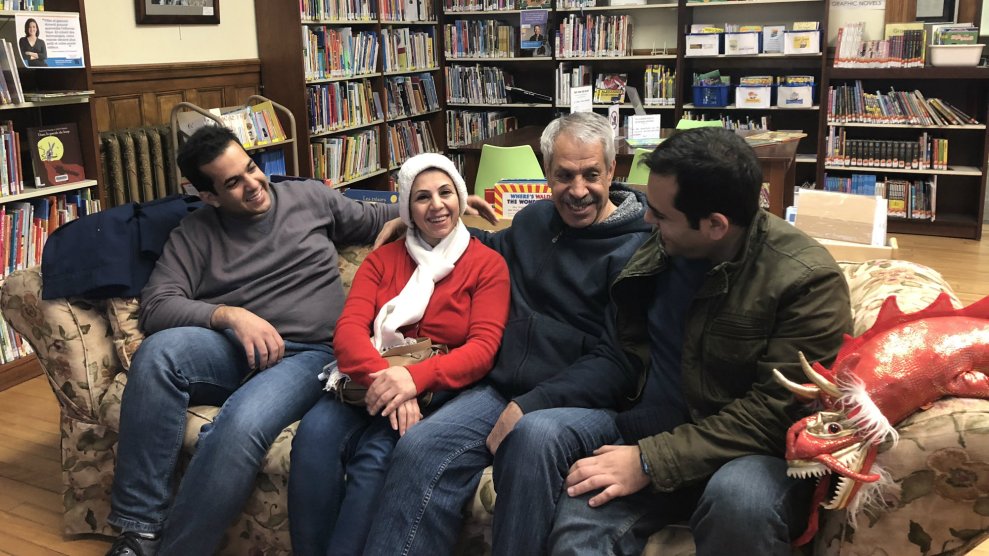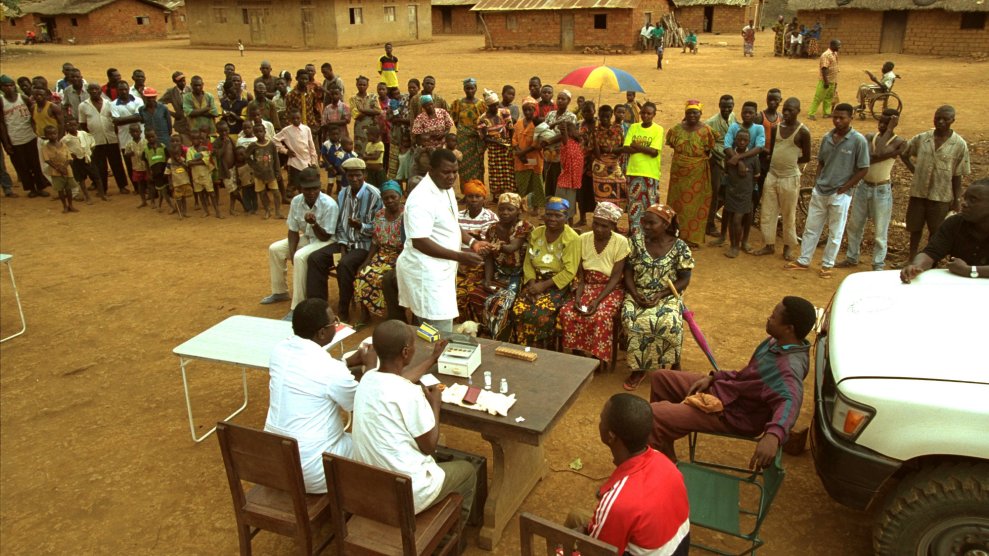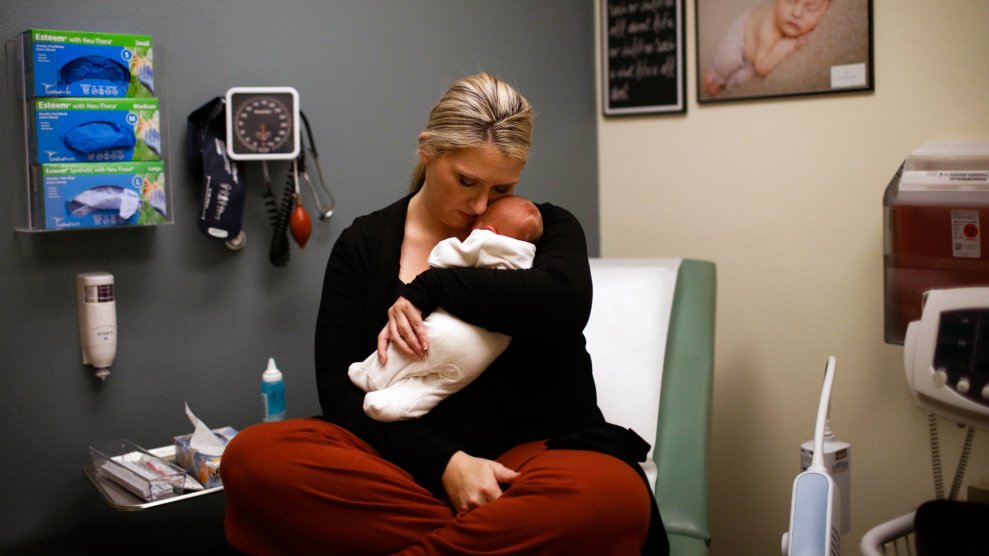
An Iranian family at the Haskell library on the US-Canada border. Courtesy of Yeganeh Torbati/Reuters
For many immigrants affected by the Trump administration’s travel ban, the Haskell Free Library and Opera House, a library straddling the US-Canada border, has become an unlikely haven. Families can meet there without risking being detained or prevented from returning to the US.
“This is a neutral area,” says Sina Dadsetan, an Iranian living in Canada who traveled to the library on the Quebec-Vermont border to meet his sister, who lives in the United States.
The library has separate parking lots in each nation, but just one entrance.
“You don’t need your passport. You park on your side, I’ll park on my side, but we’re all going to walk in the same door,” former library board member Susan Granfors told Reuters.
For Iranian student Shirin Estahbanati, the six-hour drive north from New York City was the first opportunity she had to see her parents in almost three years.
“The time I was just hugging my parents,” Estahbanati told Reuters, “I was thinking, I wish I could stop all clocks all over the world.”
Welcome to Recharge, a weekly newsletter full of stories that will energize your inner hellraiser. Sign up at the bottom of the story.
- The pleasures of public libraries. BuzzFeed asked its readers how libraries have improved their lives—and collected 26 heartwarming responses. “If I couldn’t feed my bank account, I settled on feeding my mind,” wrote one reader. “Books helped me feel a bit less lonely,” said another. (BuzzFeed News)
- Giving away a windfall. Outdoor clothing company Patagonia said it is taking the extra $10 million it received from the Trump administration’s “irresponsible” tax cut and donating it to environmental groups. “Our home planet needs it more than we do,” Patagonia CEO Rose Marcario wrote in a LinkedIn post. The company already gives 1 percent of its sales to organizations that help preserve the world’s ecosystems. (The Hill)
- Soccer beats bullying. A crowdfunded campaign raised more than $200,000 for a 15-year-old Syrian refugee after a video of him being bullied went viral. The bully has been identified and ordered to appear in a youth court, while the goalkeeper of the local soccer team invited the high schooler and his family to a match. (New York Times)
-
Girls can rock basketball sneakers, too. Nine-year-old Riley Morrison wanted to buy a pair of Steph Curry’s famous sneakers, but when she couldn’t find them in the girl’s section on the Under Armour website, Morrison wrote a letter to the Golden State Warriors star. “I hope you can work with Under Armour to change this because girls want to rock the Curry 5’s too,” wrote Morrison. Curry replied in a tweet and told her they were “correcting” the oversight and asked her to come to Oakland on March 8 to celebrate International Women’s Day with him.
Thanks to reader Sree Sreenivasan for suggesting this story. (CBS News)
- Fixes from the heart. Here are 14 of the best problem-solving stories this year from the Solutions Journalism Network, a nonprofit which promotes solutions-based reporting. One such eye-opener: How health clinics in rural Kenya draw in notoriously reticent nomadic herders for checkups by caring for their animals. (Solutions Journalism Network)
We want to hear from you! Let us know your favorite Recharge-style story and why—whether it was about someone helping others, justice prevailing, or an action that inspired you. Even better: Tell us about something you did as a result of these stories. We’re planning our end-of-year column and would love to feature your ideas. Email me at recharge@motherjones.com or fill out the form below.

















